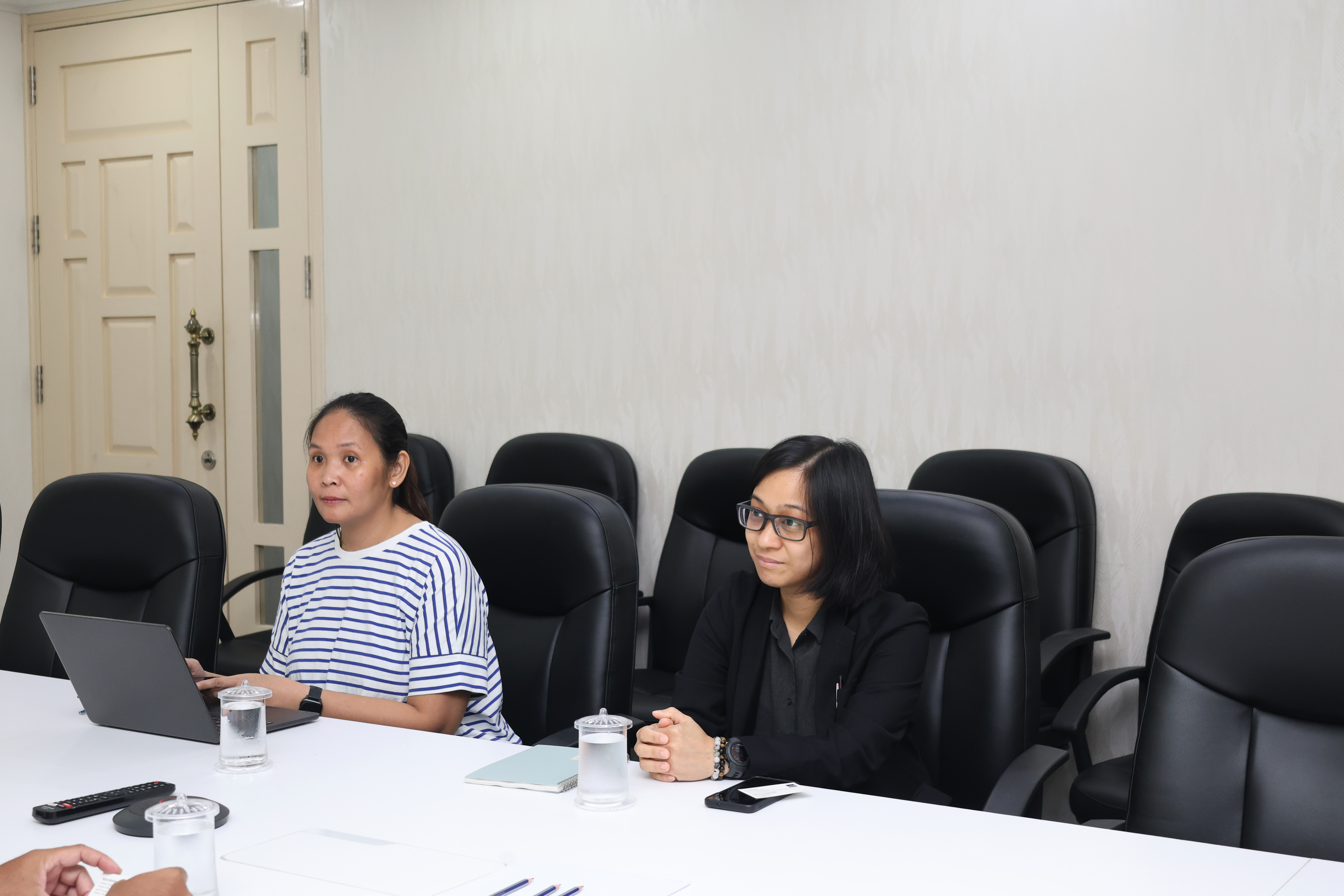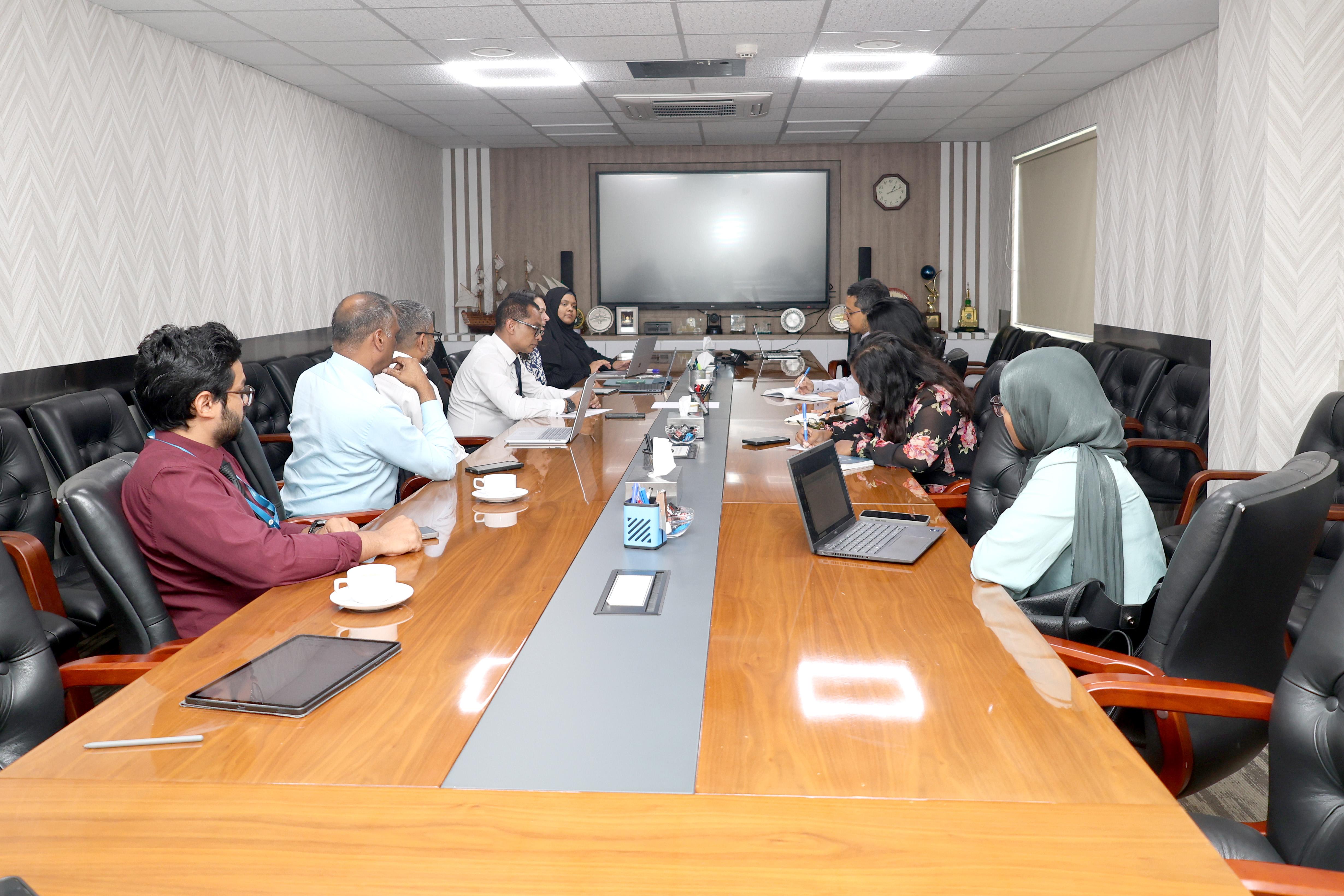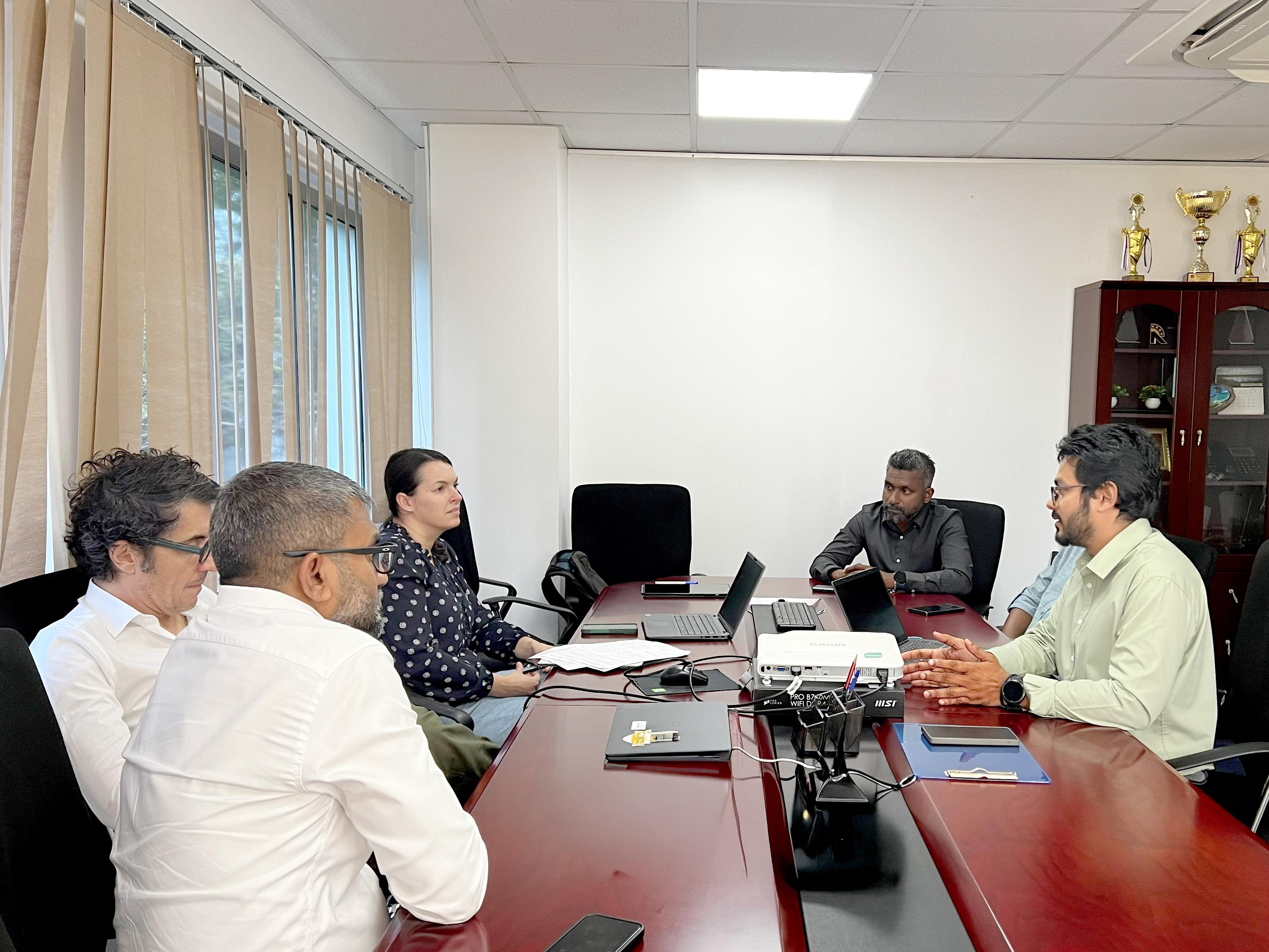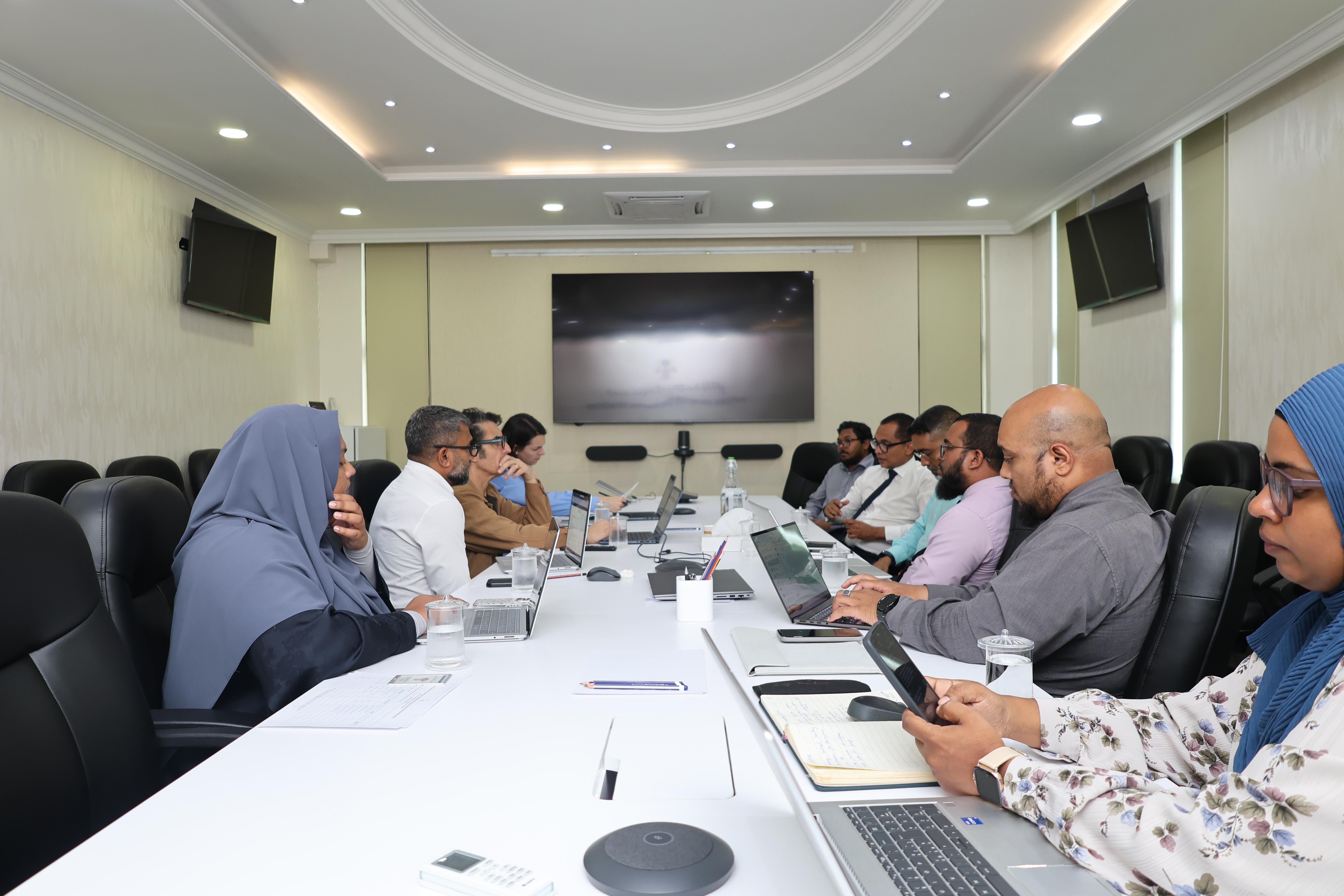News
ADB Mission Members Meet with DMADD Team to Explore Climate Resilience Synergies
06 May 2025

Ms. Kyla Matias, Climate Change
Officer from the Climate Change, Resilience and Environment Cluster of the
Asian Development Bank’s (ADB) Climate Change and Sustainable Development
Department, and Ms. Maria Anna C. Qrquiza, Senior Public Management Officer
(Disaster Risk Management), paid a courtesy call to Dr. Ibrahim Waheed, Project
Manager of the Digital Maldives for Adaptation, Decentralization and
Diversification (DMADD) project. The meeting was held at the National Centre
for Information Technology (NCIT).
Joining Dr. Waheed from the DMADD
team were Mr. Ahmed Haleem, Communications Specialist, and Ms. Fathimath Shafa
Hussain, Project Officer.
The meeting centred on
introducing the DMADD project and exploring potential avenues for collaboration
with ADB’s sustainability and resilience initiatives in the Maldives. The ADB
team shared updates on their ongoing support for the Maldives Meteorological
Service (MMS), including the establishment of weather stations, flood risk
management efforts, and coastal protection programs. They also highlighted
community-focused initiatives such as capacity building and infrastructure
upgrades for urban farming, particularly at the Hanimaadhoo Agricultural Centre
(HAC).
Dr. Waheed emphasized the strong
potential for collaboration and provided an overview of DMADD’s key
components—particularly Component 3, which includes pilots such as the
Multi-Hazard Early Warning System for Fuvahmulah City and the Data Platform for
Climate Action. The platform aims to facilitate structured data exchange
between agencies through standardized formats, governance policies, and system
integration.
He also shared the success of the
Maldives Ocean Hackathon, a completed pilot that brought together IT and
environmental experts to develop innovative solutions for environmental
management. Additionally, he discussed the ongoing Passive Acoustic Monitoring
pilot for reef restoration, conducted in partnership with the Environmental
Protection Agency (EPA).

Dr. Waheed stressed the
importance of inclusive collaboration, citing DMADD’s direct engagement with
beneficiaries such as the Fuvahmulah City Council. He noted that while the
Ministry of Climate Change, Environment and Energy is the primary beneficiary,
local councils will receive access to data and facilities to ensure
community-level impact.
The ADB team expressed interest
in developing an Early Warning System tailored to the agriculture sector. Both
teams discussed the importance of aligning donor-funded projects to avoid
duplication and maximize impact. Dr. Waheed cautioned against siloed approaches
and advocated for synergy-driven collaboration to ensure sustainable and practical
solutions for the public.
Before concluding, Dr. Waheed
highlighted DMADD’s legislative efforts to create an enabling environment for
digital transformation. These include the drafting of the Personal Data
Protection Bill and the Cybersecurity Bill—critical frameworks for safeguarding
data use. He also emphasized the need for capacity building within key
institutions such as NCIT and the National Cyber Security Agency.


